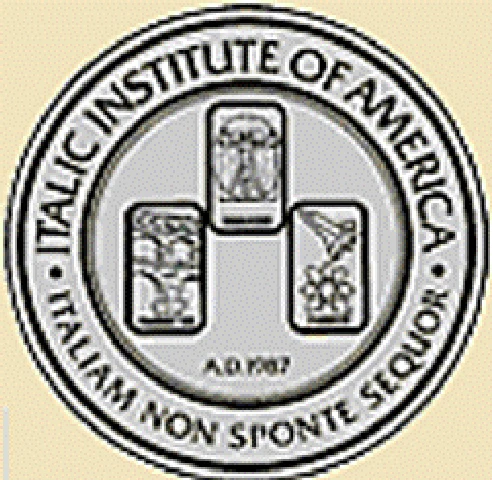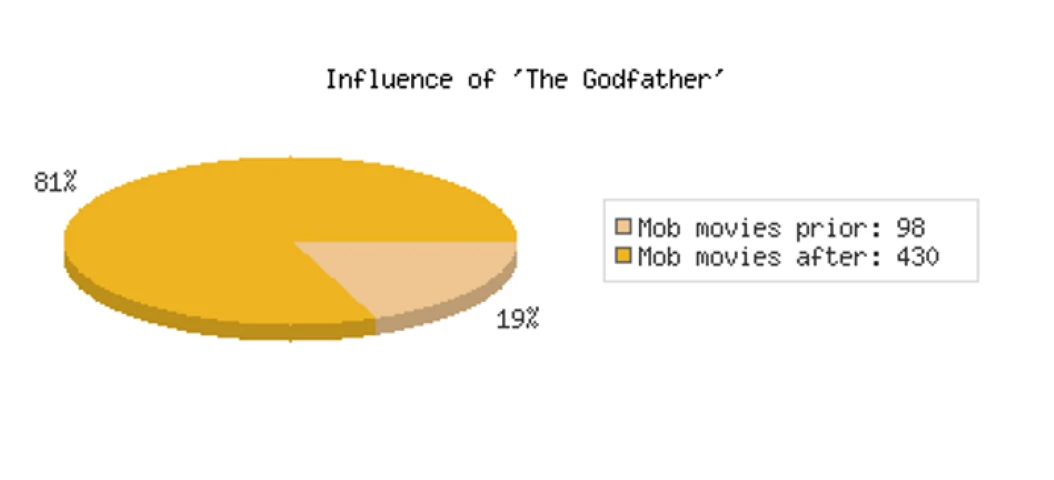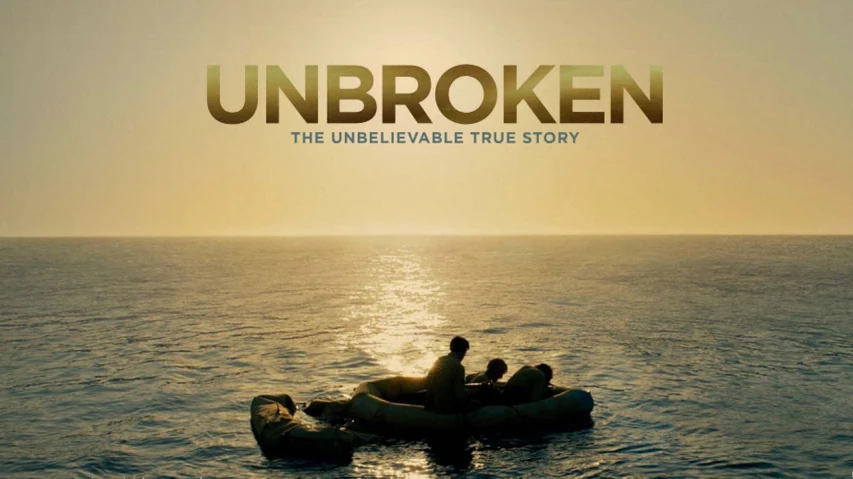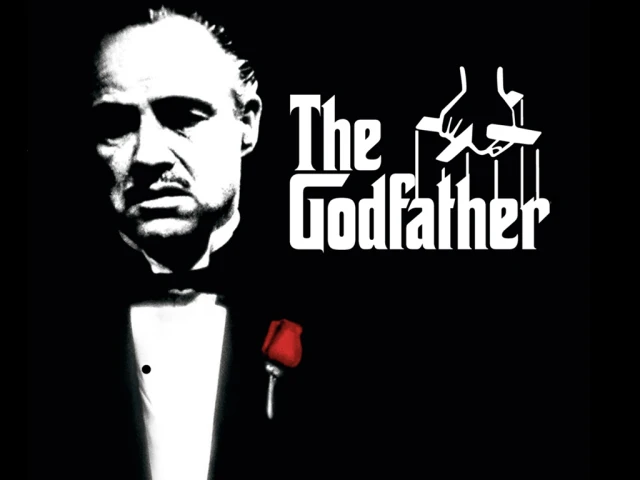With the exception of Louis Zamperini in 2014 "Unbroken", it has been almost impossible to find Italian American positive characters in the Hollywood storytelling of last decades. While Italian Americans have proved their talent and their hardworking attitude with an exceptional positive contribution to American society, economy, culture in any possible field, fiction and movies seem to tell again and again and again the same old negative stereotype.
In 2014 a very interesting study about this topic has been promoted by the Italic Institute of America, who also updated the study in 2015. We have today with us the President of IIA, Bill Dal Cerro. We thank Bill for the possibility to talk about this
Bill, you are the President of the Italic Institute of America. Please tell us something about it
The Italic Institute of America (IIA) was founded in Floral Park, New York in 1987. It was founded to preserve and promote the legacy of Italic culture in the U.S. and around the world, particularly its classical legacy (that is, its Roman-Etruscan roots and its impact on Western Civilization, as well as the discoveries of Il Rinascimento). Its original founders, John Mancini, Stefano Gristina, and businessman Carl Pescosolido, felt that most existing Italian American organizations were sorely lacking in two things: an appreciation of anything deeper than the immigrant perspective, and a total lack of interest in inspiring young Italian Americans to be proud of that heritage. To educate adults, the Institute publishes The Italic Way, one of the most thoughtful and provocative magazines in the country. There is no food, no fashion, and no travelogues. Its aim is to provoke and uplift our community's intellectual appreciation of "italianità" beyond immigrant stories and food recipes. The same is true for the IIA's initiative for children, AURORA, a language and culture program for kids aged 9-12 (middle school).
In 2015 you updated your very interesting years-long study of Hollywood's treatment of the Italian mobster, "Film Study: A Century of Little Progress" (1914 - 2014). What is this study, and when and why you had the idea of working of something like this?
As a trained journalist and film critic as well as educator, I found it imperative that the Italian American community get serious about analyzing the reality of our history in America. Far too many Italian Americans complacently accept the "reality" of what they see on American movie screens as "Italian culture," even though, in real life, most Italian Americans will admit that a majority of these negative images are false. They feel that most non-Italians share this false sense of security. They don't realize the power of images to shape peoples' perceptions. Consequently, as the study reveals, such complacency has allowed Hollywood to distort our true history in America. Film is the ONLY industry in American society where Italian Americans have very little true power. Yes, Francis Ford Coppola and Martin Scorsese get movies made ... but what kind of movies? Again, as the study reveals, even so-called artists like Coppola and Scorsese are "limited" in their scope when it comes to painting different images of Italian Americans. Prejudice still exists.
Which are the most important results of the study?
To me, the most important result is that nine out of ten Italian gangster images in American movies (86.9%) are completely false; they have no basis in reality. They are simply caricatures. For every film about say, Al Capone, there are eight other films with a gangster named "Vito" or "Tony" who isn't real. And yet, people accept them as "true!"
I found particularly interesting the part where you refer about the relationship between the total number of Italian Americans (17 millions according to 201 Census) and the one of Italian criminals (1.150, as to say 0,0068% of the community) ...
As did I. This proves how distorted things are between "real" life and Hollywood's "reel" life. And the gangster obsession isn't just limited to movies; you also see it in TV shows, newspaper articles, novels, and—if you can believe it—cartoons aimed at children.
Sadly, even il bel paese has internalized this negativity. I've been a fan of Italian cinema since I was a child, and I've noticed that Italy itself is suddenly producing a high number of films about gangsters: the Camorra, N'drangheta, etc. Either Italy is now a cesspool of a nation dominated by gangsters (which I don't believe) or Italian filmmakers are imitating their cugini across the Atlantic, eager to exploit this genre to gullible Americans (which I do believe). Both Italians and Italian Americans don't understand the power of imagery.
Is there something in the study that is not well known among the Italian American community, but still you think it's important to be told?
Before "The Godfather" in 1972, the number of gangster films was quite low, 98. There was a more balanced approach to our community. With the success of that film, however, a "Berlin Wall" of stereotyping was erected, generating other 430 movies of this kind. It has been non-stop negativity for 43 years.
We've enjoyed very much the 2014 movie "Unbroken", the story of the great Louis Zamperini, which you described as "one of the few Hollywood film to feature an Italian surnamed male character in a heroic, complex, or dignified role". We unfortunately know the too long list of movies that depicted the Italian Americans in a bad way, so let's think positive: in your opinion, which are the top 5 Hollywood movies that have been positively describing an Italian American character?
Opinions on films are very subjective. There is also context—for example, early movies versus modern movies. Many good ones came out in the 1950s: "Marty" and "The Rose Tattoo," for example (both 1955), or "Full of Life" (1956). Certainly, "Unbroken" deserves to be on that list. And I would add a documentary like "Berkeley in the 1960s," which shows a real-life Italian American: Mario Savio, who led the Free Speech student movement of the era. Incredibly, Savio, a Sicilian American, grew up with a stutter but became one of the greatest public speakers of his generation. The more that Hollywood focuses on real Italian Americans like Zamperini and Savio, the less room they have to falsify us as a community.
We all know about the Godfather effect. Let's play what if: what if Mario Puzo had never written the book, and then Francis Ford Coppola had never done the movie ... would we still be here talking about a pretty evident and hurtful Hollywood behavior against the Italian Americans?
Puzo and Coppola's collaboration was a game-changer. It made anti-Italian stereotypes romantic and mythological. Again, look at the statistics: 81% of gangster movies came after the success of that film. There still might be that perception out there that Italians are 'better' gangsters than gangsters from other ethnic groups, thanks to Al Capone's notoriety, but "The Godfather" turned journalists, academicians, and film critics against us. Those groups of people - college educated and pro "diversity" - turn a largely deaf ear to Italian stereotypes. They, too, accept them as "real," and dismiss our concerns with derision.
Do you think that the Italian Americans should have fought more against the stereotyping against them? And, what should they do now, when sometimes it seems that America is politically correct towards everybody but them?
Ironically, promoting positive images and correcting distortions WAS an early focus of the Italian American intelligentsia. But somehow, such efforts became overshadowed by hugely successful Italian American business leaders who often cared more about money and prestige and becoming "American." These leaders began a tradition of spending money on everything except Italian culture. Instead, they raise money or spend money on non-ethnic causes such as hospitals, charitable groups, generic college scholarships, etc. Their purpose is to show non-Italians that we're really "good" Americans, not Mafiosi.
What they don't realize is that non-Italians still make jokes about how these charitable organizations are run by "gangsters." Such gestures of good will mean nothing.
Until the issue of media images is fully addressed - and we believe our film study is a step in the right direction - Americans who have a vowel at the end of their names will continued to be looked down upon as socially inferior.
Con l'eccezione di Louis Zamperini nel film "Unbroken" del 2014, è quasi impossibile trovare personaggi positivi italoamericani nella produzione cinematografica di Hollywood degli ultimi decenni. Mentre gli italoamericani, grazie al loro talento e al loro duro e caparbio lavoro, hanno dato un eccezionale contributo positivo alla società, all'economia, alla cultura degli Stati Uniti, in ogni campo possibile, fiction e film sembrano raccontare sempre e solo lo stesso vecchio stereotipo negativo.
Nel 2014 uno studio molto interessante su questo argomento è stato promosso dall'Italic Institute of America: lo stesso studio è poi stato aggiornato nel 2015. Oggi abbiamo con noi il Presidente del IIA, Bill Dal Cerro, che ringraziamo per la possibilità di parlare di questo argomento
Bill, tu sei il Presidente dell'Italic Institute of America. Di che si tratta?
L'Italic Institute of America (IIA) è stato fondato a Floral Park, New York nel 1987, per preservare e promuovere l'eredità della cultura italica negli Stati Uniti e in tutto il mondo, e in particolare la sua eredità classica (ovvero, le sue radici Romane ed Etrusche e il loro impatto sulla civiltà occidentale, così come le scoperte del Rinascimento). I suoi fondatori, Giovanni Mancini, Stefano Gristina, e l'uomo d'affari Carl Pescosolido, ritenevano che la maggior parte delle organizzazioni italoamericane esistenti allora mancasse di due cose: un apprezzamento di qualcosa di più profondo rispetto alla prospettiva degli italiani come immigrati, e l'interesse di ispirare i giovani italoamericani ad essere orgogliosi di questo patrimonio. L'Istituto pubblica "The Italian Way", una delle riviste più riflessive e provocatorie del Paese. Non si parla di cibo, di moda o di viaggi. Il suo scopo è quello di provocare e elevare l'apprezzamento intellettuale della nostra comunità della "italianità", al di là delle storie di emigrazione e delle ricette alimentari. Lo stesso vale per l'iniziativa della IIA per i bambini, AURORA: un programma di lingua e cultura per i bambini di età compresa tra 9-12 (scuola media).
Nel 2015 avete aggiornato il vostro studio - durato anni e molto interessante – su come Hollywood ha descritto la mafia italiana: "Film Study: A Century of Little Progress" (1914 - 2014). Ci descrivi questo studio, e quando e perché avete avuto l'idea di lavorare su qualcosa di simile?
Come giornalista, critico cinematografico e anche come educatore, trovavo assolutamente necessario che la comunità italoamericana analizzasse con serietà e rigore la realtà della nostra storia in America. Troppi italoamericani accettano con compiacenza che la "realtà" narrata sugli schermi cinematografici americani passi per la vera "cultura italiana" anche se, nella vita reale, moltissimi italoamericani apertamente sostengono che la maggior parte di queste immagini negative è falsa. Essi credono che anche la maggior parte degli Americani di altra provenienza siano a conoscenza del fatto che la storia narrata nei film sia falsa: non si rendono conto del potere che le immagini hanno nel plasmare la percezione delle persone. Di conseguenza, come lo studio rivela, ciò ha permesso a Hollywood di distorcere la nostra vera storia in America. Il cinema è l'unico settore dell'industria americana in cui gli italoamericani hanno molto poco vero potere. Sì, Francis Ford Coppola e Martin Scorsese girano diversi film ... ma che tipo di film? Anche loro, come lo studio rivela, difficilmente escono dal solito schema, quando si tratta di raccontare gli italoamericani. Il pregiudizio esiste ancora.
Quali sono i risultati più importanti dello studio?
Per me, il risultato più importante è che nei film americani quasi nove su dieci (86,9%) personaggi di gangster italiani sono completamente falsi: non hanno alcun fondamento nella realtà. Sono semplicemente caricature. Per ogni film su Al Capone, ad esempio, ci sono altri otto film con un gangster di nome "Vito" o "Tony", che non esiste. Eppure, la gente li considera personaggi reali!
Ho trovato particolarmente clamorosa la parte in cui si fa riferimento al rapporto tra il numero totale di cittadini italoamericani (17 milioni nel 2010) e quello dei reali accertati criminali (1.150 dai dati dell'FBI, quindi lo 0,0068% della comunità italoamericana) ...
Si, anche io. Questo dimostra quanto siano distorte le cose passando dalla vita reale alla presunta "realtà" di Hollywood. E l'ossessione per i gangster italiani non si limita solo al cinema; si trova anche negli spettacoli televisivi, negli articoli di giornale, nei racconti e, incredibilmente, persino nei cartoni animati destinati ai bambini.
Purtroppo, anche il Bel Paese ha interiorizzato questa negatività. Sono un grande ammiratore del cinema italiano da quando ero bambino, e ho notato che l'Italia ha improvvisamente iniziato a produrre un gran numero di film di gangster: la camorra, la ndrangheta, ecc. O l'Italia è ormai una nazione come un pozzo nero dominato da banditi (e non ci credo), oppure i registi italiani stanno imitando i loro cugini di oltre oceano, desiderosi di sfruttare questo genere vendendolo agli Americani creduloni (e questo è quello che credo stia accadendo). Sia gli italiani che gli italoamericani sembrano non comprendere il potere delle immagini.
C'è qualcosa nello studio che non è forse ben conosciuto nella comunità italoamericana, ma ritieni sia importante sottolineare?
Prima de "Il Padrino", nel 1972, il numero di film su gangster italiani era abbastanza basso: 98. C'era un approccio più equilibrato verso la nostra comunità. Con il successo di quel film, però, si è alzato un vero e proprio muro di stereotipi che ha generato altri 430 film di questo tipo, che da 43 anni portano solamente negatività.
Io ho molto apprezzato il film "Unbroken", la storia del grande Louis Zamperini, che tu hai descritto come "uno dei pochi film di Hollywood che mostrano un personaggio maschile italoamericano in un ruolo eroico, complesso e dignitoso". Purtroppo conosciamo la troppo lunga lista di film che hanno ritratto gli italoamericani in modo negativo, quindi cerchiamo di pensare positivo: secondo te quali sono i primi 5 film di Hollywood che abbiano descritto positivamente un personaggio italoamericano?
Le opinioni sul film sono molto soggettive, e va considerato anche il contesto. Alcuni buoni film uscirono negli anni '50: "Marty" e "The Rose Tattoo" (La rosa tatuata), per esempio (entrambi del 1955), o "Full of Life" (1956). Certo, "Unbroken", merita di essere su questa lista. E vorrei aggiungere un documentario come "Berkeley in the 1960s" (Berkeley negli anni '60), che mostra un grande italoamericano, una persona realmente vissuta: Mario Savio, che guidò il movimento studentesco dell'epoca. Incredibilmente Savio, un americano di origine siciliana, era cresciuto balbuziente, ma divenne uno dei più grandi oratori della sua generazione. Più Hollywood si concentra sui veri personaggi italoamericani realmente vissuti, come Zamperini e Savio, meno spazio ha per falsificare la nostra comunità.
Tutti conosciamo il "Godfather effect", l'effetto che ebbe "Il Padrino". Secondo te cosa sarebbe accaduto se Mario Puzo non avesse mai scritto il libro, e poi Francis Ford Coppola non avesse mai girato il film? Saremmo comunque qui a parlare dell'evidente e offensivo comportamento di Hollywood contro gli italoamericani?
L'accoppiata Puzo e Coppola ha cambiato tutto. Ha fatto degli stereotipi anti-italiani qualcosa di romantico e mitologico. Di nuovo, si guardi ai numeri: l'81% dei film sui gangster italiani venne dopo il successo di quel film. Forse ci potrebbe essere ancora la percezione che gli italiani sono mafiosi "migliori" rispetto a gangster di altri gruppi etnici, grazie alla notorietà di Al Capone; ma "Il Padrino" ci ha messo contro giornalisti, accademici e critici cinematografici. Questi gruppi di persone - con tanto di istruzione universitaria e grande attenzione a rispettare le "diversità" – si sono rivelati sordi nei confronti di gran parte degli stereotipi italiani. Anche loro li accettano come "reali" e respingono le nostre preoccupazioni con derisione.
Pensi che gli italoamericani avrebbero dovuto combattere di più gli stereotipi contro di loro? E, cosa dovrebbero fare, oggi che a volte sembra che l'America sia politicamente corretta verso tutti, tranne loro?
Ironia della sorte, la promozione di immagini positive e la correzione delle distorsioni era uno dei focus su cui si concentrarono all'inizio gli intellettuali italoamericani. Ma in qualche modo, questi sforzi vennero offuscati dal grande successo degli imprenditori italoamericani che spesso finirono per interessarsi più dei soldi e del prestigio, e di diventare "American". Questi leader iniziarono la tradizione di spendere soldi per tutto, tranne che per la cultura italiana: invece, decisero di raccogliere e destinare fondi per cause non legate alla loro etnia, come la sanità, gruppi di aiuto caritatevole, borse di studio universitarie generiche. Il loro scopo era quello di mostrare agli Americani non di origine Italiana di essere dei veri e generosi Americani, non dei mafiosi.
A mio avviso, quello che non capirono è che nonostante ciò, gli Americani non di origine italiana fanno ancora battute su come queste organizzazioni caritative siano gestite da "gangster". Tali gesti di buona volontà non hanno avuto alcun significato.
Fino a quando il tema di come vengono descritti gli italoamericani dai media non sarà pienamente risolto, e io credo che il nostro studio sia un passo nella giusta direzione, gli Americani che hanno una vocale alla fine dei loro cognomi continueranno ad essere guardati dall'alto in basso dagli altri, come se fossero socialmente inferiori.







